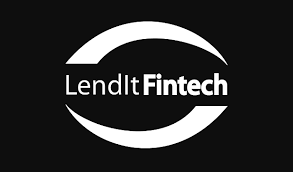[Panel Recap] Lendit 2020: Fintech Success with Low- to Middle-Income Earners in COVID-19 Era

COVID-19 has exacerbated income volatility and work hour instability for low- to medium- income (LMI) Americans. The good news is, some innovative fintech entrepreneurs have products and services to meet this challenge.
Flourish Managing Partner Emmalyn Shaw recently moderated a LendIt2020 panel on “Income Volatility and Financial Health” with fintech leaders including:
- Aneesh Varma, Founder and CEO at Aire
- Mimi Joy, Director, Marketing and Business Development at the Financial Health Network
- Jon Schlossberg, Co-Founder and CEO at Even
- Adam Roseman, Co-Founder and CEO at Steady
A replay of this panel is available to anyone who registered for LendIt2020, and below is a recap.
Earning Enough Money, Getting Control of It
“The world has changed dramatically in recent months. The LMI population is now facing inconsistent income and a shortfall in income,” said Steady’s Roseman. “So, we’ve shifted to helping them generate income.”
Steady helps gig workers find work. Its collaborative dataset of 2 million community members’ skills and work provides insights for better earning opportunities for gig workers. During the pandemic, Steady has also disbursed emergency cash and helped its members access government relief.
A fighting chance to find more and better work opportunities is exactly what millions of Americans need, especially when their monthly expenses remain the same. “I’ve actually come to talk about this issue, not as financial health or financial wellness...but as having money in your bank.”
Of course, there’s more to it than that, Jon Schlossberg said. It’s just the easiest way to understand the eight measures of financial health developed by the Financial Health Network, such as being able to pay bills on time, having manageable debt, and planning ahead.
If Steady helps people make more money, Even helps them get more control over the money coming in and going out. “It’s not just about income volatility. You can also have crazy volatility with expenses. It’s about the timing of both,” added Jon.
Most bills are due once a month, but workers budget around their bi-weekly paychecks. Even offers a suite of tools built to help provide responsible early wage access to smooth income and expenses. Using these PFM tools, Even members are saving 5 times the national average since the pandemic began.
Consumer Trust, and the Promise of an Income Data Stack
Even is free to workers, because it’s paid for by employers, such as Walmart, an example of the third-party-payer model. “To build a successful fintech business, especially one focused on consumer financial health, the role of monetization is critical,” said Emmalyn Shaw at Flourish. “So is trust.” That’s because fintechs rely on rich data to provide consumers better services, and to grow. The data fintechs need is often a combination of what banks offer and consumers provide themselves (aka first-party data), so earning consumer trust is essential.
“Under the hood, we’re a credit reference bureau, but we have to act as a filter, and be independent,” Aire’s Aneesh Varma said, “It’s really letting the consumer speak for themselves. We have to earn that trust, and counterintuitively, consumers will tell us more than they would’ve told a bank.”
Financial Health Network’s research backs this up. As Mimi Joy of FHN said, “trust makes the consumer stickier and adopt more products with you.” Through services like Plaid, fintechs can connect to consumers’ accounts, see deposits, and therefore income. “Income data allows us to do so much more on top,” said Aire’s Aneesh Varma. “It’s almost a stack you can build. But when you see income data, there’s so much context above it you don’t see.”
Providing context, such as consumers’ employment sector, the average income in that industry, etc.) is necessary for more predictive, customized financial services. “As we get the proliferation of Plaid-like companies, like for payroll data, we’re going to see lots of new products,” added Schlossberg. “That’s good, because it’s very hard to help people who are living paycheck to paycheck with just bank data.”